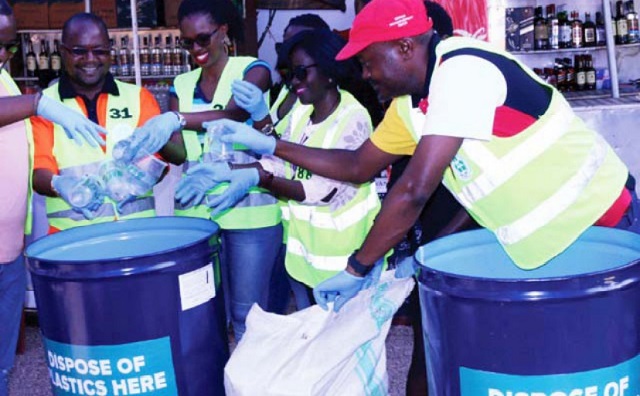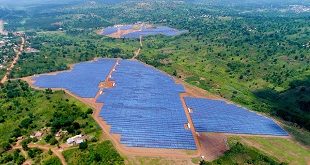
This comes when countries that used to import plastic waste including China and India for recycling are beginning to impose bans
Kampala, Uganda | ISAAC KHISA | Plastic Recycling Industries, a subsidiary of Cola Cola Company in partnership with the Nice House of Plastics, Kampala Capital City Authority and Stanbic Bank plans to set up a fibre production plant in Kampala to help combat plastic waste and save the environment.
Samuel Kangave, plant manager at Plastic Recycling Industries told The Independent in an interview that the plan is to have the factory up and running in a year’s time and thus reduce reliance on waste exports.
“Nice House of Plastics will be taking part of the planned factory operation and we shall be supplying them with the flakes which is the raw material for making fibre,” he said.
“Therefore, that factory will be converting plastics into fibre such that people who are in the textile industry can source the raw materials locally instead of importing them from other countries.”
This development comes at the times oil prices on the global market have fallen so low such that plastic producers have resorted to virgin raw materials from petroleum to make plastic products.
This also coincides with a new campaign around the world advocating for a ban of importation of plastic waste products towards fibre production.
China, for instance, banned foreign plastic waste imports with effect from January 1, 2018, and India followed its footsteps to be on track to meet the target of phasing out single-use plastics entirely by 2022.
Currently, Cola Cola which processes 5,600-6,000 tons and expandable to 9,000 tons per annum, exports all its plastic wastes as flakes to the US, Portugal and Vietnam.
Kangave said the price of processed plastic waste goes as for as high as $US300-US$350 per ton depending on the oil prices.
“Plastic pellets can be put back as a recycled raw materials to make plastic bottles but we do not have the technology here to make them back for human use,” he said.
Though statistic of the quantity of plastic imported and used in the country remains scanty, Kangave said that a study carried out around Kampala City and its environs showed that only 35 per cent of the plastic bottles used are collected.
The rest are left in the environment and often responsible for blocking the water channels causing floods and others washed into the available water bodies including Lake Victoria.
Similarly, available statistics shows that the value of imports for plastics, rubber and related products has been increasing over the past decade, thanks to the increasing demand for plastic materials.
Latest figures from the central bank shows that value of plastics, rubber and related products imports into the country has more than doubled from US$176.6million in 2010 to US$387.5million in 2020.
Global perspective
Coca-Cola has set a target to collect 100% of its packaging by collecting a bottle or can, regardless of brand, for every one produced by 2030.
So far, the beverage company has already rolled out bottles made from 100% recycled plastic in the US, Netherlands and Norway, as part of its latest efforts to eliminate the use of virgin oil-based plastics in its products.
This is in response to information disclosed through the Ellen MacArthur Foundation’s New Plastics Economy Global Commitment in 2019 report that found that Coca-Cola used three million tonnes of plastic in its global operations in 2018. This figure accounts for both virgin and recycled plastics.
The company was also named as the world’s largest corporate plastic polluter in 2019, in a report from Greenpeace international. Over the course of 239 clean-ups in 42 countries across six continents, volunteers collected more than 180,000 pieces of plastic.
However, the packaging produced by Coca-Cola, PepsiCo, and Nestlé collectively accounted for 14% of the branded items retrieved during the clean-ups.
Going forward, Kangave said the problem of plastic waste can only be fully addressed if all players using plastics along their value chain can cooperate in plastic collection and recycling.
“ We as a Coca Cola business, we have committed ourselves to find a way of recycling bottles whether or not we are making money out of it. It is a commitment that we made,” he said.
****
 The Independent Uganda: You get the Truth we Pay the Price
The Independent Uganda: You get the Truth we Pay the Price


